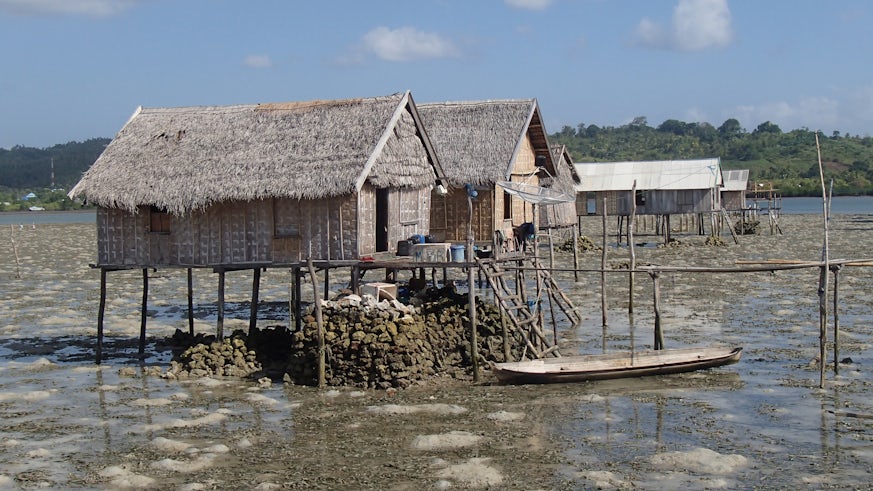Seagrass, the secret stars of food security
19 Mawrth 2015

Funding for a new project will help to demonstrate the value of seagrass meadows and their role in supporting food production.
The project, a collaboration between Cardiff and Swansea University researchers, will support communities across South East Asia to demonstrate the value of their seagrass resources and identify the current issues in order to bring about conservation action. Information gathered will be used to help communities and managers to take action to stem seagrass loss and empower them to call for policy changes to support seagrass conservation.
Speaking about the project, Dr Leanne Cullen-Unsworth said: 'Seagrass meadows remain an overlooked resource that is globally threatened due to human impact. However, an appreciation of their value for supporting fish productivity, food provisioning, and food security is growing. In SE Asia seagrasses are subject to widespread threat and conservation remains largely marginalised.'
The project will build on work carried out through a previous project "Recognising the role of seagrass meadows in food security: re-prioritising the marine conservation agenda" (2011-2014), which focused on the Wakatobi National Park, Indonesia. That project evidenced the direct economic value and food security potential of seagrass meadows and prompted local government and community stakeholders to place seagrass on their conservation agendas for the first time. The Wakatobi project demonstrated how seagrass associated species provide an essential source of protein and income to the vast majority of people in the region. Evidence of the links between seagrass and food security was highlighted, and that these currently expansive ecosystems remain largely ignored within formal legal or environmental management frameworks, even within an Marine Protected Area (MPA) at the heart of the Coral Triangle.
This new project will focus on the drivers of seagrass degradation at multiple scales as understanding these drivers will support the development of context specific and more effective MPA planning.
More information on this collaborations can be found on the Seagrass Project website.